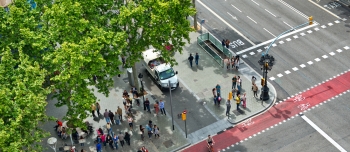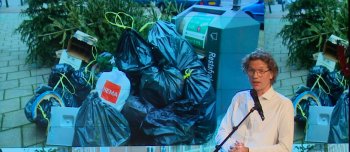Closer Cities aims to create a bridge between urban science and urban practice. By collecting cases on urban practice, analysing them on the shoulders of urban science and sharing research outcomes, urban knowledge becomes shareable. In the ‘5 questions’ series, we ask scientists to briefly reflect on their research and the shareability of their insights and projects.
1. What is the main focus of your research (topic, theme, region)?
Community Resilience Initiatives in response to COVID-19. The study is world-wide.
2. Can you give a brief description of your research?
Inequality tends to increase during and after a crisis. Researchers, the UN and governments warn of rising inequality due to the COVID-19 pandemic. Especially urbanites living and working in informality are at risk, as many lose casual or temporary income, urban supplies of basic necessities have become unsure as their value chains are broken, and informal living and working conditions render people vulnerable to COVID-19. Multiple informalities are likely to lead to multiple vulnerabilities. At the same time, we witness a proliferation of community-resilience initiatives (CRIs). The crisis has led to high levels of uncertainty and unforeseen challenges, not covered by the government or markets. Community action fills the gap. Our main research question is: How do urban community resilience initiatives emerge and develop within different governance contexts amidst the COVID-19 pandemic?
3. How much influence does ‘local context’ have in your field of work? Can results or solutions from your research be shared with other regions easily?
The emergence, sustainability and scaling of CRIs is conditional and context specific. These conditions relate to capacities and networks within informal urban communities and CRIs, networks between urban communities, and networks between CRIs and other actors such as local government. Urban governance, defined as collaborative networks of public, private and civil actors, mediates opportunities of CRIs to emerge and develop. CRIs function best in a governance context which offers recognition, legalisation, support and open networks, and which do not smother local initiatives in bureaucratic procedures or political ambitions. The study draws light on an enduring urban governance dilemma: how inclusive collaborative networks relate to informal, illicit and sometimes illegal CRIs, which partially thrive because they operate outside formal systems.
4. What are the main lessons learned that can be used by urban initiatives?
The main lesson is that community resilience initiatives make a city more resilient. But the link between city councils and CRIs tends to be weak: most city councils are so busy coping with the crisis that they become inward looking. However, if a local government links up with community initiatives the city and its citizens can become more resilient.
5. How do you think cities can implement these lessons?
We recommend city councils to:
- Recognize and support CRI's
- Offer support and financial mechanisms
- Appreciate differences among CRIs
- Learn from criticism
- Do not take over the role of CRIs
- Coordinate within city council (one-stop shop)
- Stay away from political interference











